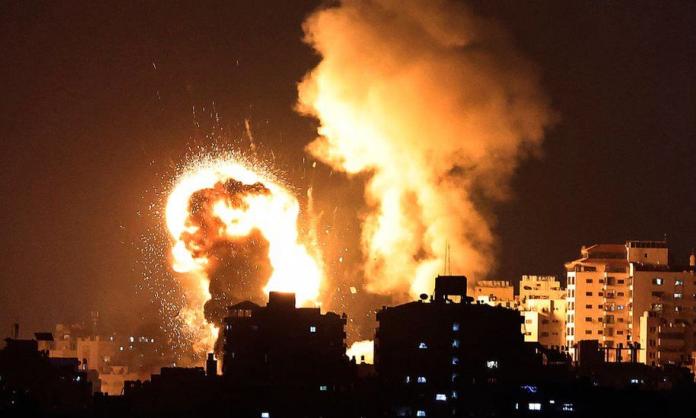My phone was buzzing all night on the eve of Eid. But it wasn’t receiving the annual barrage of annoying tag messages of Happy Eid, greeting cards and videos of a crescent moon with a catchy dance tune. My phone was buzzing with updates on where the bombs were falling, which buildings were erased, which relatives were hiding where. I tried to keep up through the night, as if staying awake will keep my loved ones alive. Humans are funny like that, they think they can fend off death and destruction just by staring at a screen and wishing for the horrors to end. They don’t. It doesn’t work that way.
In the morning of Eid, I called them. I didn’t want to. Is this selfish? I didn’t want to hear the fear and the trauma and I didn’t know if I could hide my own fear and trauma, which really doesn’t measure to theirs, but it is mine. I didn’t know what to say. ‘Happy Eid’. That’s all the words I could manage before the tears. Lots of tears.
They, my extended family, were all huddled in the ground floor apartment of the family home, which is four stories high. Let me explain. In Gaza, the world’s most populated open-air prison, families grow upward toward the sky. Like trees. They build upward and upward hoping to reach God. Maybe God will see them. But I don’t think he does. But Israeli drones and planes certainly do. Israel doesn’t like the Palestinians moving up vertically that’s why they keep flattening high rises. I digress.
Read the article in Meanjin.

